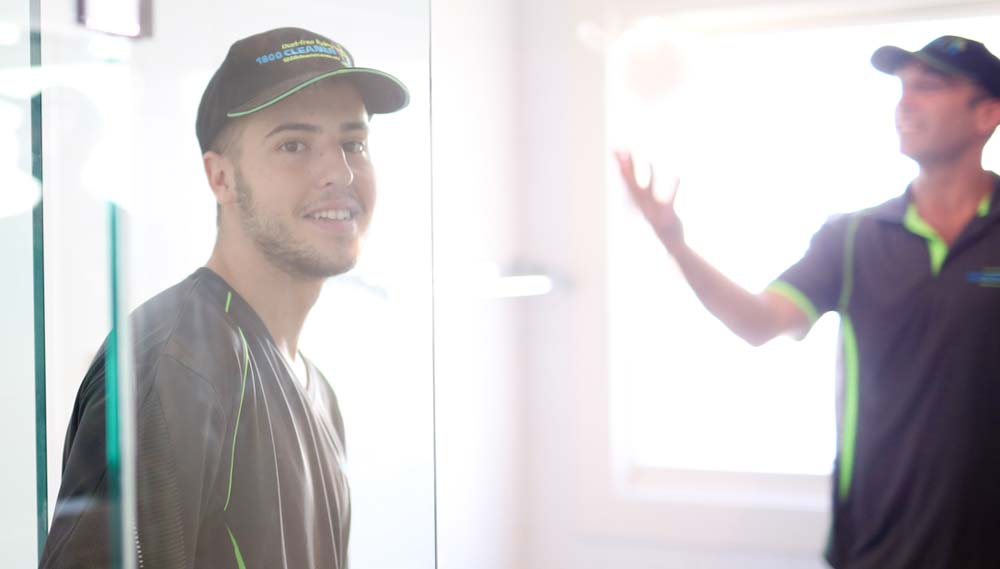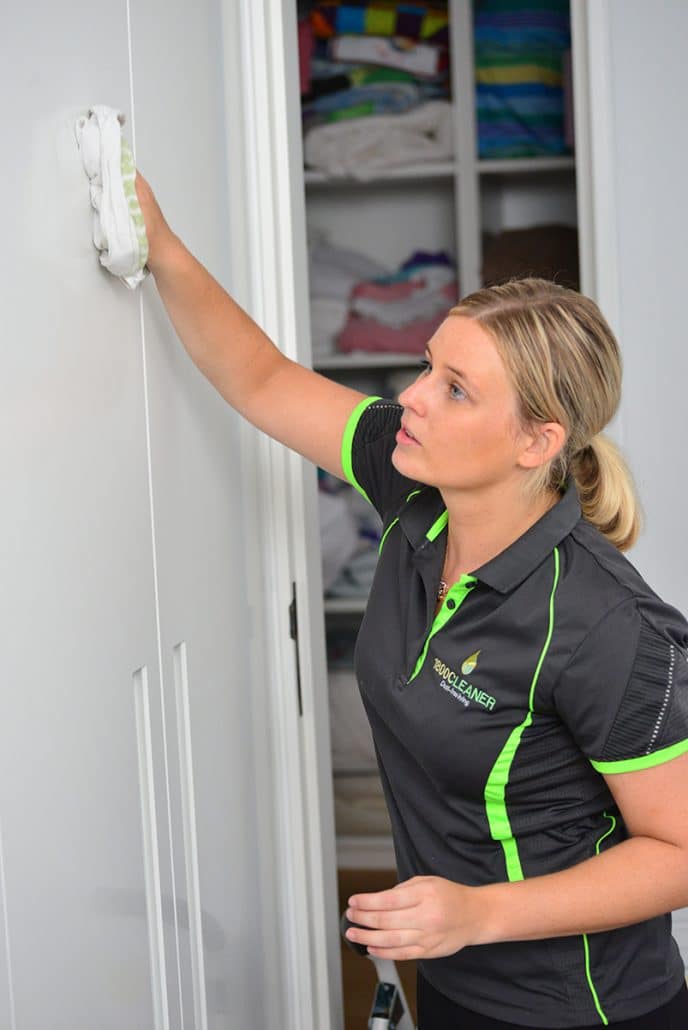How to find a good cleaner? We take a closer look at the top ten issues and outline how to solve them.
Family life in Sydney is busy. Families are often overwhelmed by the time-consuming things they must do every week, and cleaning is at the end of the list. Fair enough, it’s a difficult chore and one that can feel like Groundhog Day. Yet having the family home tidy and clean significantly enhances our quality of life. So the oft-asked question is, “How do I find a good cleaner?”
This is one reason why so many families in Sydney outsource their cleaning. Yet, the satisfaction levels with the available cleaning services are often frustrating. But how do you find a good cleaner, and how can you ensure their cleaning service remains consistent over time? Before jumping to the solution, we need to analyse the problem.
1. Issue one – Price
The first thing to know about cleaners and cleaning companies is that many compete primarily based on price. This leads to many cleaning service operators trying to get the sale by offering a low price to clean your house when you request a quote. Once they are in the place, they often over-service the customer on the first couple of cleans, but then they claw back their profits by reducing the amount of time they spend in the home, which decreases over the long term. Subsequently, the quality of service is also reduced, and roughly 40% of customers will stick with these cleaners for longer than they should due to inertia. Most cleaning companies make a business out of retaining this subset of customers and doing quick cleans with many cleaners and a high staff turnover.
The truth is that a great cleaner will have options to do all other sorts of work. Therefore, a good cleaner will expect to be well-paid, meaning that great cleaning and excellent value for money do not often correlate with “cheap”.
2. Issue two – Chinese Whispers
It is standard human nature that when we receive less service than expected, we like to clarify and communicate our expectations to the front-line staff providing the service. In this case, those people are the ones cleaning our homes. Many cleaners do this work not out of choice but out of necessity, often because their skill set does not always enable them to do higher-paying jobs. Often, English is a second language, and they can feel embarrassed that the Australian accent can be challenging to understand. Hence, when clients ask them to remember this and that, their reflex response is to nod as if they get it when they haven’t. Some of these souls are in survival mode and just trying to survive the moment.
Time and again, these things are not completed, and the solution seems to logically be to try and tell them again with more energy, which can create a frustration and resentment spiral, which is not great energy to come home to.
3. Issue three – Cleaner turnover
This issue is closely linked to issues one and two above, as price-driven economics lead to low client and staff satisfaction levels and regular staff turnover, which the service provider often exploits. It’s frustrating for clients to have to retrain these staff themselves and each subsequent cleaner only to have that intellectual property disappear with the new face randomly cleaning their home on each successive visit. The best companies take great care of their people, and that’s how they can help you find a good house cleaner you will love.
4. Issue four – Customer expectations
Clients who expect low prices and high-quality cleaners need to consider their expectations. It’s like having the budget to buy a Holden Commodore but wanting a Ferrari. The Ferrari salesman will have none of it, and neither will a high-quality cleaner in high demand. Quality costs a little more; a great job is the ultimate value proposition.
5. Issue five – Hourly rates
It’s natural to want a great clean at the most economical price, but you rarely see a bead of sweat from a cleaner paid by the hour. They will naturally drag the job out. So, how do you compare quotes? Well, it’s not straightforward nor easy, and not all cleaners are created equally, use the same equipment or follow the same method. However, comparing hourly rates works on the assumption that all cleaners provide a homogenous service. They are not. Some are fitter than others. Some care more than others.
A few follow a system, are intelligent and hardworking and take pride in their work. To complicate matters, there are cleaner award rates. So the temptation becomes to pay cash. But what about insurance? We get what we pay for in life; when we pay peanuts, we get monkeys, which is an unavoidable truism.
6. Issue six – Fine particle dust
This one is perhaps the most perplexing. It involves microscopic dust particles so fine that the naked human eye can’t even see them. It’s the dust that we sometimes see the glitter in the shaft of sunlight when we move the curtains in the morning. When disturbed with traditional cleaning methods, this dust goes airborne and can stay suspended for up to five days, finally resting when the cleaning effort is finished. And so it circulates, accumulates, and frustrates ongoing cleaning efforts, often without us knowing it. But we can feel it, and it subconsciously feeds that frustration of never having the house very clean. Getting rid of the dust is half the battle when trying to answer the question of how to find a good house cleaner.
7. Issue seven – Method
Most cleaners clean without a strategy. Some clean simultaneously as part of a gang, each carrying out their cleaning function and getting in and out quickly like a swat team. Others clean room by room. Some clean with a dry cloth, and others use the same dirty mop head from one house to another. There is no method to this madness, and that’s the problem. Cleaning is just another challenge that can be solved with intelligent thinking and a well-thought-out plan. So rather than expect your cleaners to know what they are doing, ask them. What’s your cleaning method?
8. Issue eight – Energy
The subject of energy is the most intriguing and potentially the most confusing issue. It’s also a paradox. A dirty and dusty house sucks away our energy. And we need the energy to clean effectively. A practical and productive cleaning session and the subsequent clean home will feed us energy. We also need to have a method and a strategy to make our cleaning effective, focusing on clutter and dust extraction. All of this probably feels like hard work, and it’s easier to grab the duster and get cleaning yourself. Yet ironically, the energy we invest in getting everything correct will feed back more energy by reducing the amount of energy we leak out by cleaning unproductively. Not an easy concept to get your head around, but a crucial one indeed.
9. Issue nine – The cleaner is king
It’s another paradox that both parties lose when we have a one-sided power struggle in any relationship. It is ironic in the case of cleaning, but meeting the customers’ needs requires us to focus first on meeting the cleaners’ needs. A happy cleaner makes a satisfied customer. It’s a relationship of equals, and both parties must be pleased with the other. The best and longest-lasting customer/cleaner relationships are where both parties work together towards a win-win situation. That way, the cleaner does all those things expected consistently well on every visit. They also imprint the house with lovely energy that families can feel, and the cleaner can drive home with a big smile, a warm heart and a stress-free life.
10. Issue Ten – Clutter
Clutter makes cleaning so tricky. It collects dust and stagnant energy and can be the bane of a consistently clean house. Your cleaner will usually go around it, creating “dead zones” in the home that create a stagnant feeling of “stuckness” that gets in the way of effective and efficient cleaning.
Phew! Finally, the solutions.
Make sure you get a list of what will be cleaned for your agreed price. Ensure you get a 24-hour guarantee that this is what you will be getting. If you don’t get it, what are the repercussions for the cleaning service provider, and how will they rectify it? Provide photos. Get this in writing when getting your quote and hold them to it. The list and guarantee are crucial to finding a good house cleaner.
The fundamental stress of communication is removed by having a job sheet that does not rely on people’s interpretations of language and the trap of “he said/she said.” Instead, commit to it in writing and ensure both parties agree to it and can be added to and amended by mutual consent over time. This should be controlled and administered by the operations manager of the cleaning company, who has agreed to it in writing. Pay for the job as detailed by the list, not by the hour. Whether it takes all day or is done instantly by a fairy godmother with a magic wand, it is the result you should be paying for, not the time it takes.
How to find a great cleaner? Great work deserves a fair price
Pay your cleaners well and ensure they are happy to work for the company as you want the same person for a long time. Ask the operator what the average length of stay is for their cleaners. Check your expectations, especially if you feel like you are constantly changing cleaners and never finding what you’re looking for. Are you expecting a sultan’s job on a pauper’s budget? Is this even possible? We need to be self-aware as the days of good cheap cleaners are a thing of the past. Respectfully, if you’re not getting satisfaction over time and using multiple suppliers, the pattern could have more to do with the customer than the cleaner. We advise paying the full rate for the finished job as articulated on a list and ensuring the cleaner shows you their insurance.
Dust is harder to deal with, but your cleaner needs to have an answer for this. How will they deal with the microscopic dust? Do they even think about it? Have they got a logical method? Do they dry wipe or use a wet washing method when they clean? Are they cleaning room by room, or are they using a system? How does their system work? There must be a method, or you are paying partly for unproductive labour. How do you feel when dealing with the operator? Do you like their energy? Do they feel honest?
Ask questions and seek proper answers
Ask questions, and if you’re not satisfied, move on. This is a long-term relationship and first impressions matter. Prod and probe and ask every question you can think of. And expect them to answer patiently. When the cleaners arrive, treat them well. Make them a coffee. Be kind and care about their wellbeing. This way, they will care for you if they are decent people. If they are not, you will soon know if your side of the street is clean. This is a key component in answering the question of how to find a good cleaner.
Don’t ignore the clutter
Lastly, the hardest part is dealing with the clutter. The aim is to become minimalist to enjoy the most productive and cost-effective cleaning relationship. There is no doubt that cleaning a cluttered house is challenging, time-consuming, and unproductive.
We can become so emotionally attached to stuff that it’s hard to deal with and can feel like a mountain to climb. You don’t need to throw it all out in one herculean task or one big confronting and emotional weekend. As with all big jobs, deal with it piecemeal. Make one small step and then rest. Put the clutter in boxes. Then, stack it against a wall in an out-of-site back room. This clutter in the boxes can be dealt with slowly over time when you have the energy. The energy that will be released by having the other areas of the house cleaned will be easily redeployed to deal with the clutter piecemeal later. Be gentle with yourself. And don’t accept second best, keep going util you;ve found a great house cleaner.
So our advice in a nutshell when it comes to how to find a good cleaner is;
- Get a list
- Agree to the price
- Have a 24-hour guarantee
- Get it/put it in writing
- Work to/from an agreed to job sheet
- Pay for the list, not by the hour
- Pay a little more for consistent quality
- Check your expectations
- Deal with the dust
- Reduce clutter levels
We hope this article helped you to answer the central question of how to find a good house cleaner.
Michael Sweet founded 1800 CLEANER and has been cleaning for over 35 years.








